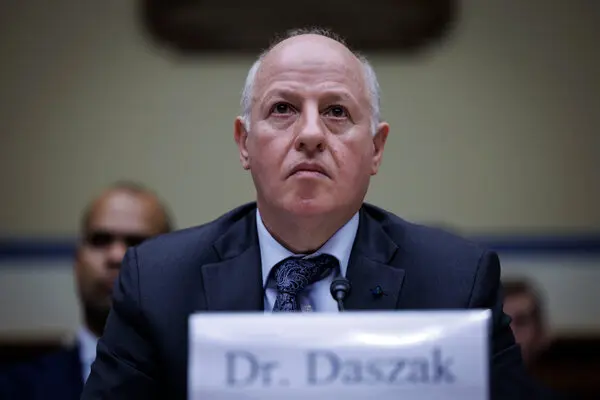US Scientist and Family Listed as Targets After Collaborating with Chinese Researchers

A prominent British zoologist, Dr. Peter Daszak, has reported receiving death threats and facing harassment linked to his collaboration with Chinese scientists on virus research. As head of the US-based EcoHealth Alliance (EHA), Daszak described the intense backlash he faced as a “medieval” witch hunt, particularly from critics of the EHA’s long-standing partnership with the Wuhan Institute of Virology (WIV).
Daszak revealed that the harassment included an envelope with white powder sent to his home, as well as the names of his family appearing on an online “kill list” on 4chan, an anonymous forum. He expressed concern over the safety implications, stating, “That is not appropriate or normal for a scientist to be put through.”
The controversy surrounding the EHA’s work intensified after the Covid-19 outbreak, as the WIV became embroiled in unverified claims suggesting it was the source of the virus leak that led to the pandemic. The WIV’s proximity to the initial outbreak location raised further questions, especially considering its history of gain-of-function experiments, which enhance viral potency.
Last year, the WIV lost US funding for ten years after allegations surfaced about it conducting hazardous experiments on coronaviruses. The US Department of Health and Human Services (HHS) cited evidence showing that researchers had significantly increased the activity of bat coronaviruses.
Since 2005, the EHA has partnered with Chinese scientists at the WIV to identify wildlife sources of coronaviruses, seeking to prevent future outbreaks. This collaboration was conducted with approval from the US National Institutes of Health (NIH) and the State Department but has faced scrutiny regarding adherence to safety protocols.
In response to accusations of a lab leak, the EHA asserted that there is no credible scientific evidence supporting such claims. Daszak maintains that their research did not fall under restricted gain-of-function studies, emphasizing that the source of the pandemic remains unidentified despite investigations into the Wuhan wet market linked to early cases.
Recent studies published in the journal Cell highlighted the presence of two early strains of SARS-CoV-2 in the market, suggesting a natural origin for the virus. The World Health Organization has deemed a lab leak extremely unlikely. However, the EHA’s NIH funding was cut in 2020, and it faces potential debarment from the HHS, jeopardizing its federal support.
Daszak noted that geopolitical tensions and public sentiment surrounding collaborations with Chinese scientists have hampered essential research efforts, risking the ability to prevent future pandemics. He highlighted the damage to reputations within the scientific community and the negative impact on vital work in high-risk countries.






